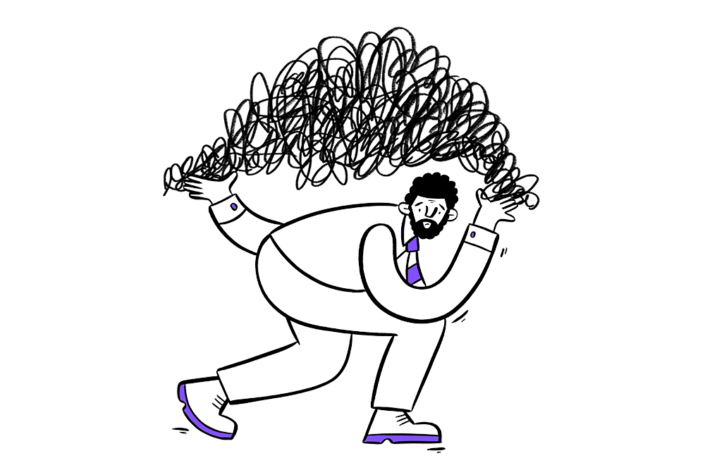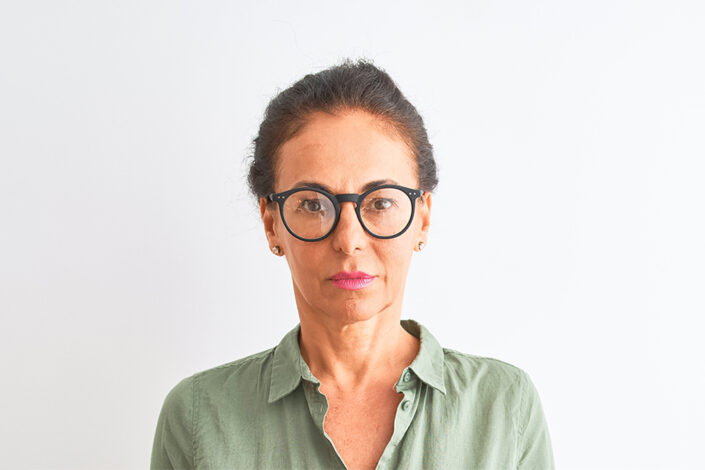If you’re in debt, here are some of the options open to you if you are based in Northern Ireland.
Informal Arrangement
An Informal Arrangement involves making an offer of payment to your creditors based on a pro rata distribution of your disposable income.
Disposable income is the money you have available after paying your priority debts and essential household outgoings. Pro rata payments mean that all of your creditors are offered a fair share of the money available. You should ask your creditors to freeze interest and charges although they do not have to agree.
If you have no available income you can ask your creditors for a moratorium. If you have minimal income available you can ask your creditors to accept token payments of £1 per month. This is likely to be accepted for a short time only while you wait for your circumstances to improve.
When entering into an informal arrangement with your creditors to pay reduced amounts, the original credit agreement is effectively terminated and this will affect your credit rating. Creditors can still trigger their normal debt recovery process and take court action against you.
This option is for commercial credit debts such as credit cards, store cards, personal loans, payday loans and overdrafts. There is no minimum or maximum level of debt. You will need to deal with priority debts first.
More information – Arranging Debt Repayment Plans – StepChange

Debt Management Plan (DMP)
A Debt Management Plan is an informal way of managing debt whereby you make reduced offers of payment to your creditors based on what you can realistically afford.
You make one payment each month to a debt management company and they distribute the money to your creditors on a pro rata basis. This means that the amount paid is directly proportionate to the total amount owing to that particular creditor.
The debt management company will negotiate with the creditors on your behalf and this can make it more likely that offers will be accepted and interest and charges frozen.
When entering into an informal arrangement with your creditors to pay reduced amounts, the original credit agreement is effectively terminated and this will affect your credit rating. Creditors can still trigger their normal debt recovery process and take court action against you.
This option is for commercial credit debts such as credit cards, store cards, personal loans, payday loans and overdrafts. There is no minimum or maximum level of debt. You will usually need to be able to pay at least £5 per month to each creditor and be able to repay your debts in less than 10 years. You will need to deal with priority debts first.
More information – Debt Management Plans – Advice NI
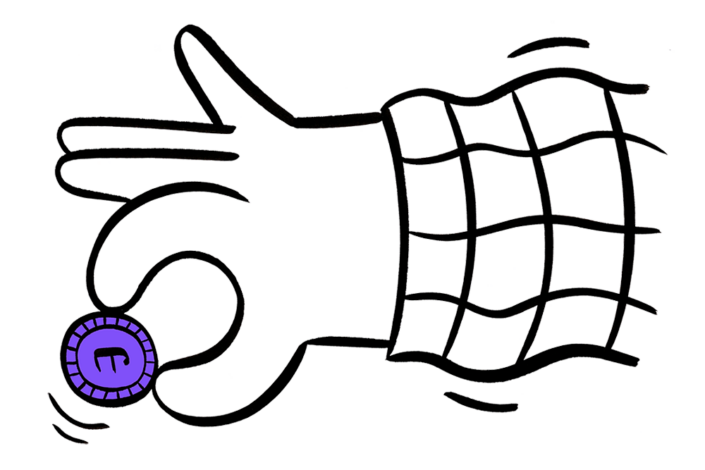
Debt Write Off
This involves asking creditors to give up their ability to collect a debt owed to them and to agree to write the debt off.
A creditor may agree to write off your debt if you have no assets, savings or available income to make any payments. You will need to show that your situation is very unlikely to improve in the future. Creditors will need to convinced that it isn’t worthwhile to pursue you for the debt.
Debt write off will still show on your credit file and could make it difficult to get credit in the future.
There is no minimum or maximum level of debt. You would usually use this option for consumer credit type debts.
More information – Debt Write-Offs – Advice NI

Full and Final Settlement
This involves asking creditors to accept a reduced sum to pay off your debt rather than the full amount owed. If the creditor agrees, there should be no further action taken to recover the debt.
If you have access to a lump sum you can ask your creditors to accept a part payment and to write off the rest of the debt. Alternatively, creditors may agree to monthly payments for a period of time and then to write off the remainder of the debt.
The debts will still show in your credit file as a partial settlement and could affect your ability to get credit in the future. It is important to get the agreement in writing before making the lump sum payment.
There is no minimum or maximum level of debt. You would usually use this option for consumer type debts.
More information – Full And Final Settlement Offers – StepChange

Equity Release
This involves releasing equity from your property to clear your debts.
The equity is the difference between the value of your home and the total of the mortgage and any loans secured against it. Equity release is an agreement that lets you access money from this equity without having to leave your home. You will usually need to be at least 55 years old. It can give you a cash lump sum or regular monthly payments.
There are two types of equity release schemes – a lifetime mortgage and home reversion.
A lifetime mortgage can give you funds in a single lump sum or in smaller amounts over time. You will agree the maximum you can borrow with the scheme provider. If you take out a lifetime mortgage, you will still be the owner of your home. Interest will be charged. You can choose to make repayments or let the interest build up. The loan and any interest will be repaid when you die or go into long term care.
Home reversion involves selling all or part of your property to a home reversion company. They give you a lump sum or regular smaller payments. The home reversion company get their share of the sale proceeds once the property is sold.
You will need to get professional advice from an independent financial adviser before entering into an equity release scheme.
More information – Releasing equity from my home – StepChange.
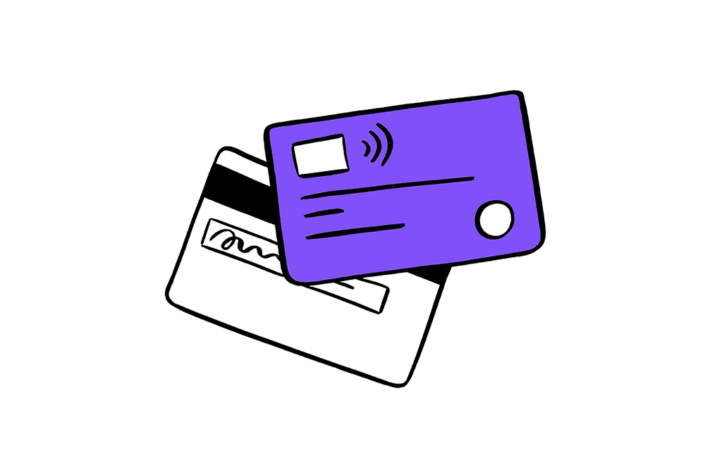
Pension Release
This involves accessing funds from your pension pot to clear your debts. It is important to get specialist pension advice from an independent financial adviser.
More information – Pension Wise – Money Helper
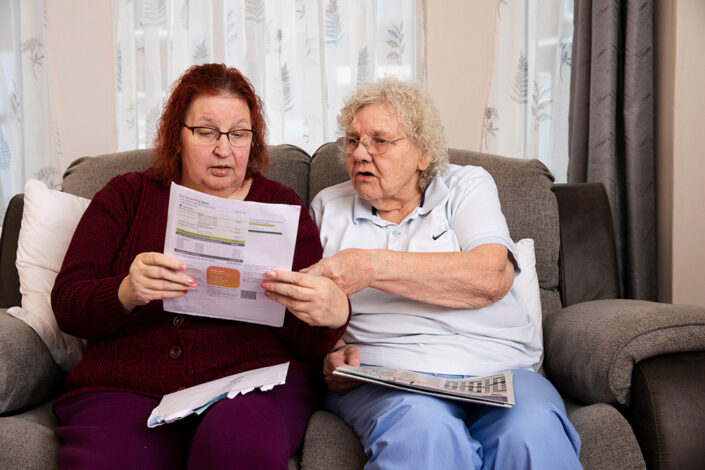
Bankruptcy
Bankruptcy is an insolvency procedure that allows you to formally declare that you are unable to pay your debts.
You can petition for your own bankruptcy or a creditor can make you bankrupt if you owe them £5,000 or more. There are fees of approximately £683 when applying for bankruptcy.
A simple bankruptcy usually lasts for approximately 12 months although in some instances it could go on for longer. Depending on your individual circumstances, you may be asked to pay towards your debts and these payments may go on for longer than the 12 month bankruptcy period.
During the bankruptcy there will be conditions and restrictions on how you deal with your money. The person appointed to deal with your case has the authority to sell any assets you may have, including your home, in order to pay your outstanding debts.
Most types of debt can be included except student loans, magistrates’ court fines, maintenance payments or maintenance arrears ordered by a court, Child Maintenance Service arrears, debts built up through fraud and debts you owe as a result of a personal injury claim against you.
More information – Bankruptcy – Advice NI

Debt Relief Order
A Debt Relief Order is a formal insolvency procedure which helps you to deal with your debts.
The application is submitted by a DRO adviser called an approved intermediary. There is a fee of £90 to submit an application.
The criteria are quite strict and you must have less than £20,000 in debts, not be a homeowner, have less than £50 in disposable income per month, general assets of less than £1,000 and a car value of up to £2,000.
The order lasts for approximately 12 months and you will not pay towards your debts during this period.
After the 12 month period has ended your debts will be written off.
There are some debts which cannot be included in a DRO such as student loans, magistrates’ court fines, maintenance payments or maintenance arrears ordered by a court, Child Maintenance Service arrears, money owed under a criminal confiscation order, debts built up through fraud, debts you owe as a result of a personal injury claim against you and budgeting loans.
More information – Debt Relief Orders – Advice NI

Individual voluntary arrangement
An IVA is a formal insolvency procedure which is set up by an insolvency practitioner and agreed by the court.
It is most suitable for someone who has a regular income which can be used to pay towards debts and usually lasts for about 5 years (although this can be extended in some circumstances).
The IVA practitioner will set up a proposal which will list all debts and make a monthly offer of repayment. It has to be agreed by the majority of your creditors (75% in value of those who vote). There is a fee for setting up an IVA and these fees will vary from company to company. The fees will be added to the proposal and you will pay them off with the IVA. The IVA practitioner will collect the agreed payment from you and distribute monies to the creditors.
At the end of the IVA period, if there is anything left owing to creditors, this is usually written off but you will be making monthly payments towards the debts throughout the IVA period. If you are unable to make the agreed payment, the IVA could fail and you will still owe your creditors which could lead to bankruptcy.
With an IVA you do not usually have to sell your home but you may be required to try to release equity from it.
Before entering into an IVA you should discuss your situation with the IVA practitioner to make sure that this is the best option for you.
More information – Individual Voluntary Arrangements (IVA) – Advice NI

How we can help and support you
Information and practical support to help you with money issues including our benefits calculator.
When money worries and mental health are connected, it can be hard to see a way through. We can help.
Related pages
Information and support to help you through legal issues. Includes three calls with a legal professional.

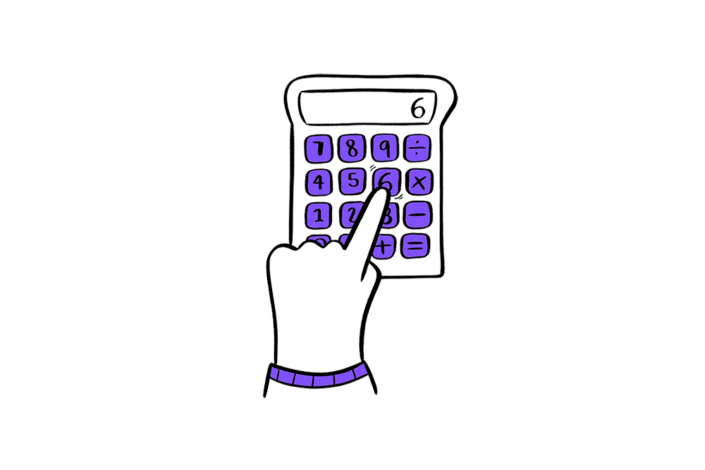
Our benefits calculator will help you find out what benefits you can claim.
